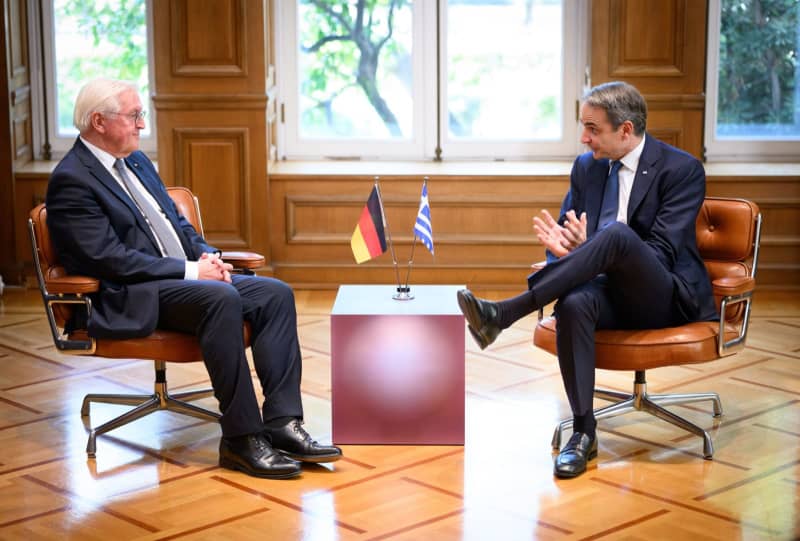During a recent visit to Athens, German President Frank-Walter Steinmeier encountered renewed calls from Greek leaders for reparations related to World War II. Greek President Katerina Sakellaropoulou emphasized the lasting impact of the war on Greece, reminding Steinmeier of the atrocities suffered and the forced loan that Greece made to Adolf Hitler’s Germany during the occupation. Sakellaropoulou expressed that the issue remains “very important” to the Greek populace and described the reparations demand as a “problem that is still in limbo,” highlighting the ongoing struggle for recognition and compensation from Germany.
Greece has been vocal in its demands for reparations throughout the years, seeking restitution for war damages and repayment of the imposed loan, which according to various calculations, could amount to between €278 and €341 billion (approximately $301 to $369 billion). In response, Steinmeier acknowledged Germany’s historical responsibilities for the atrocities committed during the war. However, he firmly rejected the notion of further reparations, stating that Germany believes the legal question surrounding reparations has been resolved under international law, while still affirming Germany’s moral and historical obligations to acknowledge the past.
During the visit, Steinmeier discussed Germany’s commitment to constructing a Holocaust museum in Thessaloniki and highlighted initiatives promoting German-Greek youth exchanges. He called attention to the complex nature of German crimes in Greece, underscoring the importance of confronting this history as part of current relations between the two nations. Steinmeier’s visit conveyed a desire to engage with these difficult subjects openly, while also focusing on the broader context of contemporary German-Greek relations.
In a subsequent meeting, Greek Prime Minister Kyriakos Mitsotakis echoed Sakellaropoulou’s sentiments about the reparations issue being “very much alive” for Greece. He expressed hope for future resolution of the reparations claim. Steinmeier, however, chose not to engage directly with Mitsotakis’ remarks about reparations during the public portion of their meeting, opting instead to commend Greece’s economic recovery following the eurozone crisis of the past decade.
Interestingly, Steinmeier had anticipated discussions about reparations and government bonds during his three-day trip to Greece, but the direct confrontation from Sakellaropoulou took him by surprise. Germany’s reparations were expected to come up again during a visit to Kandanos, a village in Crete that suffered complete destruction at the hands of German occupation forces in June 1941. This visit signifies an attempt to delve deeper into the historical wounds and explore the implications of reparations.
This ongoing dialogue reflects the complexities and sensitivities inherent in addressing historical grievances between nations. While strides have been made in acknowledging the past, the issue of reparations continues to evoke strong sentiments in Greece, symbolizing a quest for justice and recognition of suffering that has lingered for decades. As both nations work towards fostering improved relations, the discussions surrounding reparations serve as a critical juncture in their historical narrative, demanding attention to the past as both countries navigate their future.

